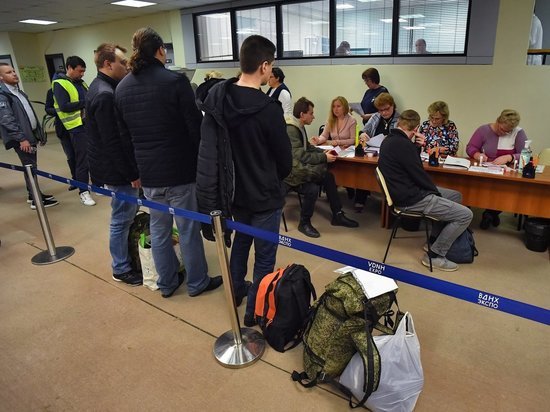Tourniquet affordable: medical equipment for a military first aid kit has risen in price by 10 times
[ad_1]

First necessities are rapidly disappearing from Russian pharmacies – tourniquets, analgesics, compression bandages and much more. They are massively bought up by relatives of the mobilized. What remains in stock is already worth it, like a wing from an airplane. State Duma deputies and governors of regions where the situation is especially difficult (Primorsky Krai, Kaliningrad, Khakassia) demand the Federal Antimonopoly Service and the Prosecutor General’s Office to check the situation with rising prices for these essential goods, but it is not yet clear where to get them. The departments reassure that everything is in order, but pharmaceutical market experts say that this is far from the case.
Due to the increased demand in pharmacy organizations for a number of medical products, the Pharmaceutical Commonwealth Association conducted a survey among pharmacy managers, which confirmed the increase in demand, and also revealed the absence or short-term presence of some highly demanded items of medical products in the price lists of wholesale pharmaceutical organizations.
“The reason for the shortage is the demand for items that are rarely purchased in retail at normal times,” the Association notes. As a result, the association asked the heads of wholesale pharmaceutical companies “to make every effort to ensure that warehouses have sufficient quantities in excess of the standard ( planned) stocks of at least 4-5 times of the following types of medical devices of especially urgent need: medical tourniquet, hemostatic collagen sponge, individual dressing bag (IPP-1), sterile medical wipes, sterile gloves, bactericidal adhesive plaster, adhesive plaster (roll ), sterile bandages, sterile cotton wool, alcohol wipes, syringes.
As the director of the SRO Association of Independent Pharmacies, head of the Alliance of Pharmaceutical Associations Victoria Presnyakova told MK, today pharmacies record a significant demand for medicines and a number of medical devices that are included in the recommended configuration of individual personal first-aid kits: “Citizens subject to partial mobilization, their relatives, Volunteers to collect everything necessary for sending to military personnel, purchase antipyretic, anti-inflammatory, anti-burn, painkillers, antiseptic, hemostatic drugs and dressings. While accurate analytical data on how much demand has grown, they will come later. There are enough drugs in the warehouses of distributors. From time to time, there is a local shortage of certain positions, but this issue is being resolved on an operational basis together with the Ministry of Industry and Trade and Roszdravnadzor. According to pharmacy organizations, alcohol wipes, cotton wool, bandages, adhesive plasters, individual dressing bags, hemostatic sponges and medical tourniquets are in high demand today. Despite this, pharmacies do not raise prices for these products. Pharmacy margins have not changed and will not change, and the cost depends on the purchase price of distributors and manufacturers. We hope that it will not change with colleagues either.”
In the meantime, the manufacturers and distributors themselves are raising prices, and in some places quite godlessly. As the governor of Primorsky Krai Oleg Kozhemyako said, until now an empty first-aid kit for military personnel cost 300 rubles, now it costs 3 thousand. However, in the Sakhalin Territory, where they quickly got their bearings, kits for those mobilized for only a couple of thousand rubles appeared on sale. They include 20 positions: anti-inflammatory, anti-burn, wound healing, analgesic, antipyretic, antiseptic, antidiarrheal agents, as well as dressings, plasters, syringes, etc. Each set has an explanatory note: in what cases and what needs to be applied.
Representatives of the pharmaceutical market say in professional chats that many manufacturers today have stopped deliveries of their goods to the commercial sector, because they are strenuously fulfilling government orders. “So it was during the pandemic, when many of the medicines needed to treat covid went to hospitals, and disappeared in pharmacies,” says one of the experts.
Meanwhile, Roszdravnadzor cheerfully reported that, based on the results of monitoring the listed goods, there was no shortage in the country’s pharmacies. “The bulk of dressings, hemostatic agents and hemostatic tourniquets are produced by domestic manufacturers on the territory of the Russian Federation. The volume of their production is sufficient to meet the demand. Providing medical organizations with these products is carried out centrally, there is no shortage of them. The situation is under the control of the Ministry of Health of Russia and Roszdravnadzor,” Roszdravnadzor reported.
But the director of one pharmacy chain says that he even ran out of Russian tourniquets: “There are no sponges of 100 mm, there are 120, but they will run out tonight. Cheap loperamide (a remedy for diarrhea – Auth.), By the way, has not been in capsules for more than 3 months.
Taking this opportunity, experts note that Russian tourniquets are not only extremely inconvenient to use, but also unsafe in terms of the development of necrosis. “Chinese turnstiles are a thousand times more convenient. But we stubbornly do what is inconvenient to use. However, there are no turnstiles in Russia today at all, even on marketplaces, there are only orders from China,” one doctor told MK.
[ad_2]
Source link








